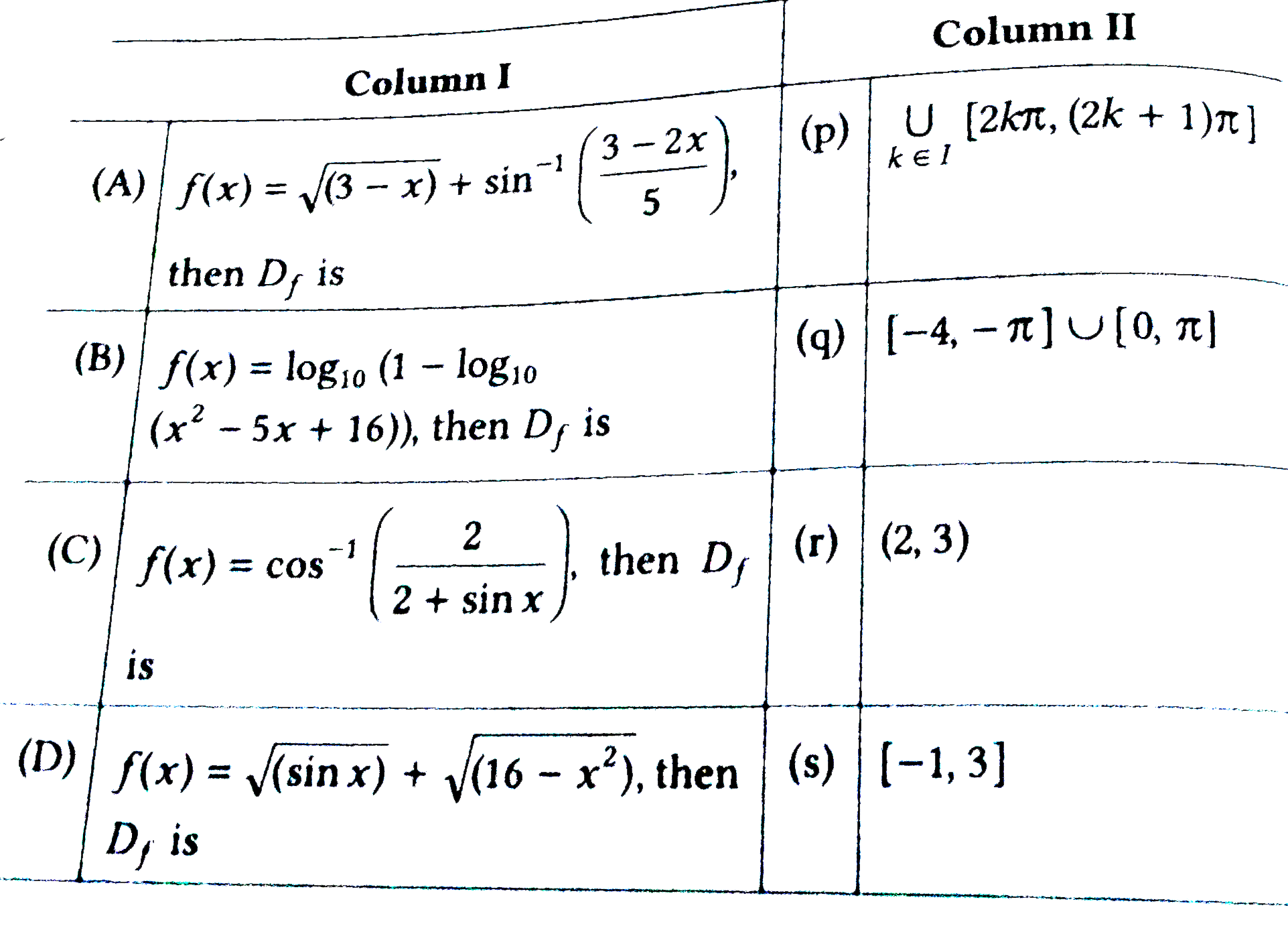If (f(x))2×f(1−x1+x)=64x∀x∈Df, then
The domain of f(x) is Solution in Bengali
[0,∞)
R−{1}
(−∞,∞)
None of these
The correct Answer is:B
(f(x))2f(1−x1+x)=64x (1)
Putting 1−x1+x=yorx=1−y1+y, We get
{f(1−y1+y)}2⋅f(y)=64(1−y1+y)
orf(x)⋅{f(1−x1+x)}2=64(1−x1+x) (2)
Squaring (1) and dividing by (2),
f(x)4{f(1−x1+x)}2f(x){f(1−x1+x)}2=(64x)264(1−x1+x)
or{f(x)}3=64x2(1+x1−x)
orf(x)=4x2/3(1+x1−x)1/3
∴f(9/7)=−4(9/7)2/3(2)
Topper's Solved these Questions
Similar Questions
Let ABCandABC' be two non-congruent triangles with sides AB=4,AC=AC′=2√2 and angle B=300 . The absolute value of the difference between the areas of these triangles is
View SolutionNumber of integral value(s) of λ for which vectors x2ˆi−ˆj+xˆk,(λ−1)ˆi−2λˆj−ˆk and ˆi−ˆj+ˆk, in the order form right-handed system ∀x ∈R, is
(a) 0 (b) 2 (c) 4 (d) 6
View SolutionIf f(x)=((x)/(1-|x|)) then D_(f) is
View SolutionIf (f(x))^(2)+f((1-x)/(1+x))=64x AA in D_(f) then
View SolutionIf (f(x))^(2)f((1-x)/(1+x))=64x;x!=0 then f(x)=
View SolutionIf (f(x))2×f(1−x1+x)=64x∀x∈Df, then
The domain of f(x) is
View SolutionIf (f(x))2×f(1−x1+x)=64x∀x∈Df, then
The value of f(9/7) is
View SolutionThe domain of the function f(x) is denoted by Df

View SolutionLet the function f:Df→[0,π2] be given by f(x)=cos−1(log12(x21+x2)) ,then (where Df is domain of f(x)
View SolutionA function y=f(x) satisfies (x+1)f′(x)−2(x2+x)f(x)=(ex)2(x+1),∀x≻1. If f(0)=5, then f(x) is
View SolutionIf (f(x))2×f(1−x1+x)=64x∀x∈Df, then
The domain of f(x) is
View SolutionIf (f(x))2×f(1−x1+x)=64x∀x∈Df, then
The value of f(9/7) is
View SolutionThe domain of the function f(x) is denoted by Df

View SolutionIf (f(x))^(2)xxf((1-x)/(1+x))=64x AAx in D_(f), then The value of f(9//7) is
View SolutionA function y=f(x) satisfies (x+1)f′(x)−2(x2+x)f(x)=ex^2(x+1),∀x>−1. If f(0)=5, then f(x) is
View Solution
